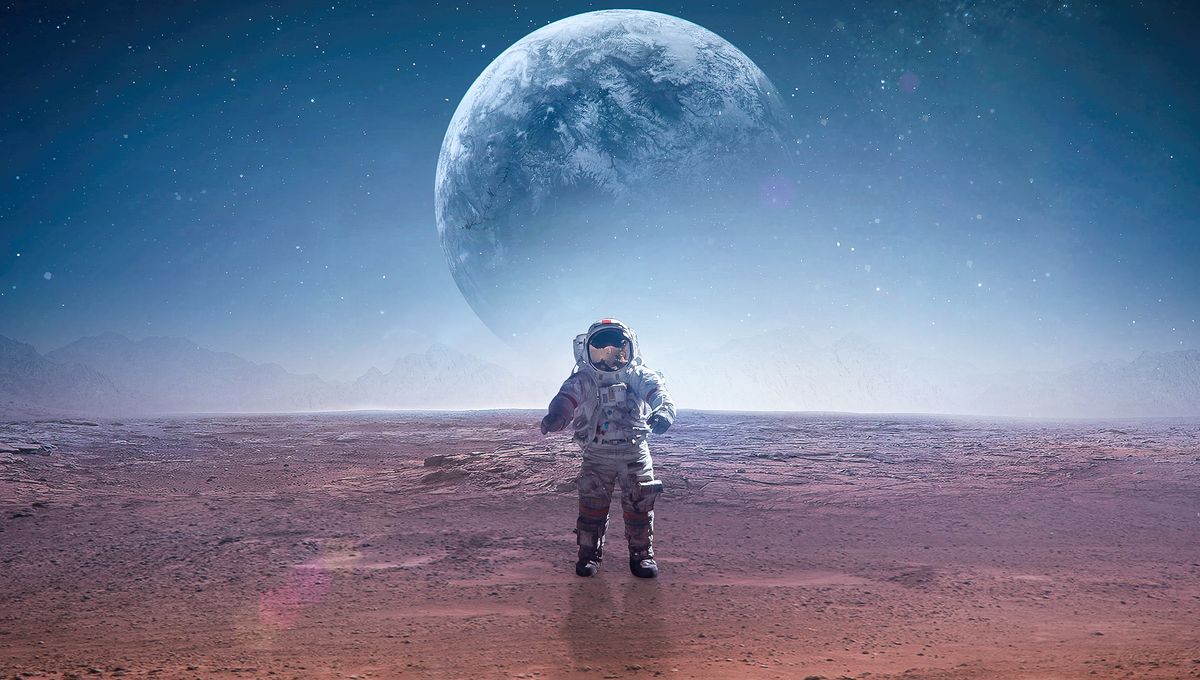
Astronauts who make the round-trip to Mars may be rewarded with a unique badge of honor in the form of “cosmic kidney disease”, which is a hell of a lot less fun than it sounds. According to new research, the conditions experienced by interplanetary travelers can radically alter the structure and function on the kidneys, with prolonged exposure to microgravity and space radiation producing irreversible damage to this vital organ.
“To put it in perspective, one year in the space station is equivalent to the same dose of radiation that a nuclear power plant worker is allowed safely in five years,” study author Dr Keith Siew told IFLScience. Even on the ISS, however, astronauts remain in Low Earth orbit (LEO) and therefore continue to receive protection from the Earth’s magnetic field against galactic cosmic radiation (GCR).
So far, the only humans to ever be fully exposed to GCR are the 24 individuals who traveled to the Moon as part of the Apollo missions, yet these return trips never lasted more than 12 days. In contrast, a visit to Mars is likely to require several years in deep space, which adds up to an awful lot more radiation.
“On deep space missions, no one’s even considered the kidney might be damaged by the radiation, despite it being among the most radiosensitive organs,” says Siew.
In their study, the researchers analyzed renal function and biomarkers from 66 astronauts and examined the kidneys of rodents that had traveled to the ISS. They also conducted a number of experiments designed to mimic the effects of long-distance space travel, bombarding mice and rats with the equivalent dose of radiation that an astronaut would receive on a multi-year trip to Mars.
Results revealed significant “remodeling” of the kidney after less than a month in space, with a key component known as the distal convoluted tubule becoming shorter as a result of microgravity and radiation. This, in turn, results in “progressive and irreversible” loss of kidney function, although exactly what impact this would have on a mission to Mars remains unclear.
“The kidney is a late responding organ, so you don’t see anything wrong until much later. You can lose 75 percent of function before you really start to see proper symptoms and decline,” says Siew. As a result, astronauts may “feel perfectly normal” throughout a mission, only to experience catastrophic kidney failure after returning to Earth.
“It’s like having high blood pressure and your heart’s getting damaged, and then one day you have a heart attack,” explains Siew.
As terrible as this sounds for the human in the space suit, if the effects are delayed for long enough then it might not harm the mission itself. Of more pressing concern, however, are kidney stones, which are up to 14 times more common during spaceflight than they are on Earth and can put astronauts out of action at critical moments.
Until now, the increased risk of kidney stones in space had largely been attributed to bone demineralization as a result of microgravity, yet the researchers’ metabolic analyses suggest that loss of kidney function may also be partly to blame. “You can’t solve this problem by just trying to fix the bones. You have to look at fixing the kidney as well,” says Siew.
Despite the seriousness of these findings, the researchers stress that their models may not accurately represent the effects of spaceflight, as they blasted their rodents with up to two-and-a-half years’ worth of GCR in short bursts of just 45 minutes. Whether or not the impact of this acute exposure matches up to the chronic exposure faced by interplanetary travelers remains unclear.
“There’s a real possibility that what we’re seeing is effects of acute radiation that you wouldn’t really be exposed to,” explains Siew. “So what we’re looking at may actually be less harmful than what really will happen. Or it could be we’re overestimating the damage,” he says, adding that prolonged exposure to lower doses may be like “death by a thousand paper cuts.”
Commenting on these findings in a statement, senior study author Professor Stephen B. Walsh said that “if you’re planning a space mission, kidneys really matter. You can’t protect them from galactic radiation using shielding, but as we learn more about renal biology it may be possible to develop technological or pharmaceutical measures to facilitate extended space travel.”
“Any drugs developed for astronauts may also be beneficial here on Earth, for example by enabling cancer patients’ kidneys to tolerate higher doses of radiotherapy, the kidneys being one of the limiting factors in this regard.”
The study has been published in the journal Nature Communications.
Source Link: New Threat Emerges For Mars-Bound Astronauts